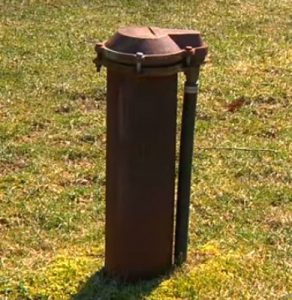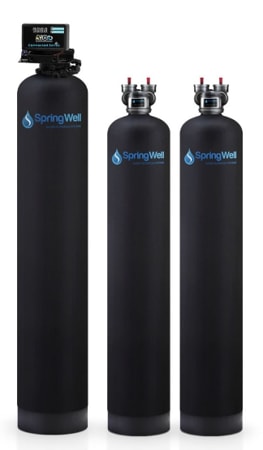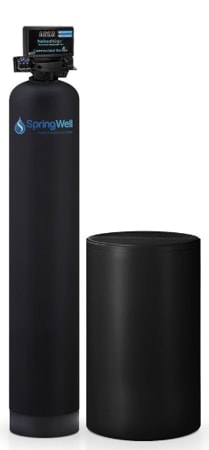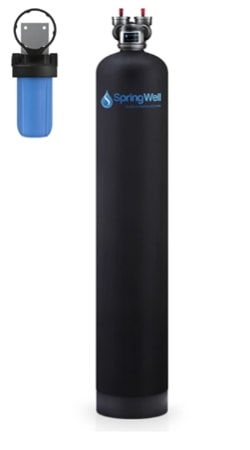American homeowners rely on private water wells or city water for daily water needs. This articles discusses the pros and cons of both water sources.
Well Water

Well water in a home means that all the water needs of that property are meant though a well. Wells are drilled in the ground, and the water inside the aquifer is accessed; the water is then supplied to your home with the help of a pressure pump.
Let’s look at the pros and cons of using well water.
Pros
No Water Bill – As wells are private property, you do not get any water bill for using water from well. However, it is your responsibility to maintain well water quality.
Loaded with Minerals and Nutrients – Well water is high in nutrients and healthy minerals as compared to city water. The water coming out of the aquifer is clean and fresh as compared to runoff and surface water.
Not affected by Natural Disasters – Private well owners can get water during natural disasters like floods, earthquakes, and storms but water quality can be impacted due to surface run off and contamination. However, you’ll have to power your well on a generator when the power goes out.
Increase in Value of Property – It has been seen that the houses with a well are sold at higher prices. It is linked with no water billing and cheap availability of a precious resource like water.
Cons
No Electricity, no Water – What happens with the people using well water during blackout? They don’t get to use water unless they have an alternative source of power. However, the blackout doesn’t happen without a reason and it is usually short lived.
Read More: Is Well Water Safe to Drink after a Power Outage?
Hassle of Maintaining Water Quality – EPA provides guidelines to maintain the well and water quality. However, it the owner’s responsibility to maintain water quality. This involves getting water tested and installing water treatment systems.
Moreover, you need to follow all the local laws while drilling, repairing, modifying or abandoning a water well.
Contamination –Well water is at greater risk of contamination than city water. Fertilizers, chemicals, waste materials from animals, bacteria, pesticides, radiation, and heavy metals can contaminate well water. Private wells built without following local laws are more susceptible to contamination. See this guide to remove iron, manganese, sulfur & coliform from well water.
Recommended Whole House Well Water Filter: ULTRA Whole House Well Water Filter Salt-Free System Combo

The unit consists of a salt-free water softener and a whole house water filter. It will remove Hydrogen Sulfide up to 8 PPM, iron up to 7 PPM, and manganese up to 1 PPM. The filter media bed is backwashed daily to refresh the filtration capacity and add a fresh air pocket for oxidation.
The water then passes through a 5-micron sediment pre-filter to remove sand, silt, and clay. It then moves through a KDF filter to remove heavy metals and a carbon filter to remove organic filters.
The water then passes through the salt-free water softener that makes it fit for plumbing fixtures, appliances, showering, and everyday use.
Hard Water – Most water wells in the US produce hard water. The calcium, magnesium and iron in water make it unusable for your appliances. The stains and scales you see on plumbing fixtures, appliances, and utensils and clothes are a result of these minerals. However, you can fix this problem with a water softener.
Recommended Water Softeners for Well Water
SpringWell’s Salt-Based Water Softener

The traditional salt-based water softener is best for large homes with a high concentration of calcium & magnesium in well water. It removes calcium & magnesium from water and adds sodium that is harmless to your appliance and skin.
It is easy to install, has a lifetime warranty on tanks and valves, and has a 6-months money-back guarantee.
SpringWell’s FutureSoft Salt-Free Water Softener

Some US states don’t allow using salt-based water softeners due to environmental concerns. A salt-free softener comes in handy in such situations. Moreover, the unit is maintenance-free and doesn’t require a discharge.
The difference between a typical salt-free softener and SpringWell is that it can handle the whole house softening needs. It also delivers a higher flow rate than an average salt-free water softener.
Similar Comparison: Well Water vs. Spring Water [Costs, Collection, Quality & Taste Compared]
City Water

People who do not have a well in their homes use city water. There are only a few areas in the whole country where the city water supply is not available.
Pros
Strict Check of Quality of Water – EPA regulates city water and maintains a strong check on water quality. The water is healthy and purified before it leaves the treatment center. This is the reason why US has the healthiest water in the world.
24/7, 365 days Availability – City water is available around the clock unless there is some natural disaster or the plumbing pipes are damaged.
Taste and Smell – Unless the authorities add chlorine in water, city water has a decent and regular taste and smell. A constant taste and smell help in building a water drinking routine.
Cons
Costly – As compared to well water, city water is expensive. We understand that one time cost of drilling a well and periodic maintenance is high, but you are not paying anything monthly.
No Payments: No Water – You will not get water if you don’t pay the bills. Well owners don’t have to worry about paying water bills.
Contamination – City water can be contaminated due to plumbing pipes. The common contaminants you will find in city water are chlorine (smell & taste), and sediment. It can also be hard if the treatment center doesn’t remove calcium and magnesium. You can install a water softener along with a sediment filter to improve water quality.
FAQ
Which is the best water filter for city water?
City water is treated before it reaches your home. You may need a sediment filter along with a water softener to make it fit for use.
Which water filter is best for well water?
For well water users, getting water tested is more important than city water users. EPA suggests that all private well owners must get their water tested annually. Once you have the report in your hand, only then can you conclude which water filter is best. For overall protection, SpringWell’s ULTRA Whole House Well Water Filter Salt-Free System Combo is an excellent choice.
Which is cheaper; well water or city water?
Well water is cheaper in the long run. Installing a well on your property may cause you way more than getting city water, but you won’t have to pay monthly bills and wait for days or even weeks to get water supplied at your home. Well water needs additional equipment like water softener, water filters, and other well equipment, but it is still worth it and results in long-run saving.
Which is healthy; well water or city water?
Both city water and well water are generally safe to consume. However, issues can happen from time to time, and you need to deal with them by installing water filters, softeners, and pressure boosters (for well water only).
Final Words
The city water vs. well water debate is a long one, and there can be no winner in it. The more important thing to consider here is how you use water. Make sure you don’t waste water either it is city water or well water.

It’s great that you mentioned that well water in a home means that all the water needs of that property are meant through a well. My brother wants to drill a well in his backyard to make it easier to irrigate his crops. I’ll share this with him to help with the drilling. Thanks!